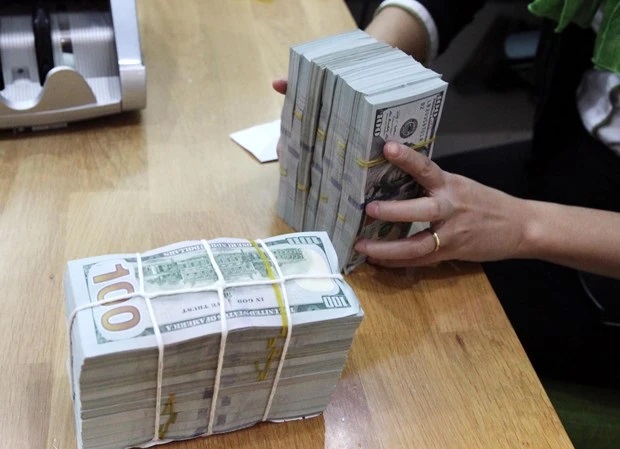 Life & Style
Life & Style

An opera titled Lá Đỏ (Red Leaf) debuted last week in Hà Nội and received high acclaim from both professions and spectators.
 |
CULTURE VULTURE
An opera titled Lá Đỏ (Red Leaf) debuted last week in Hà Nội and received high acclaim from both professions and spectators.
It is the second Vietnamese opera following the first one that was staged in 1965.
The work was staged by a team of veteran artists, such as poet Nguyễn Thị Hồng Ngát, musician Đỗ Hồng Quân and choreographer Phạm Anh Phương, who is director of the Việt Nam National Opera and Ballet (VNOB).
Culture vulture interviewed People’s Artist Phương on the opera, which is regarded as the first made-in-Việt Nam opera since the country reunited in 1975.
Could you introduce to the Lá Đỏ opera?
The first Vietnamese opera was Cô Sao (Ms Sao) in 1965. There were some other short ones later by Vietnamese artists. Since then, no more opera works have been made in Việt Nam.
The Lá Đỏ opera was produced following a project launched by the Ministry of Culture, Sports and Tourism’s Department of Performing Arts in 2013. The project aims at encouraging artists to create and enact high-quality art performances which reflect the spirit of national resistance against the French and the Americans during the 1930-75 period.
I think the project is essential for popularising opera art among the people and highlighting patriotism and national pride.
It is a chance for the young generation who were not alive during the war to learn from the opera of the hardships and the sacrifices made by the older generation for the country’s independence. It is the opera’s most meaningful message.
How did producers make the opera -- the highest standard of music -- entertaining?
I think because the opera is a story of the Vietnamese people, it is easily understood. The story is about the famous "Eight Girls Cave" in the central province of Quảng Bình. The cave bore witness to the sacrifices of members of the Youth Volunteer Brigade during the fight against the Americans. In particular, it highlights the story of eight volunteers, all aged 20, whose sacrifices became the symbol of patriotism.
The war story is fictionalised so it can be performed in the opera form. Musician Đỗ Hồng Quân successfully combined Vietnamese folk music with western music to help spectators get a feeling of familiarity while enjoying the opera.
Will the opera be performed regularly or ignored like many other stage works which did not gain popularity?
We want to stage the opera many times, not only at its debut. Other works at the VNOB, such as ballets, have been performed five or six times. It will be good if this new opera can be staged like the ballet performances.
Our artists are always ready to perform but it depends on many other factors.
How is the opera meaningful to artists at your theatre?
They are very excited to rehearse the opera which has been produced by a Vietnamese team consisting of literature playwright Ngát, musician Quân, 80 singers from VNOB and 50 musicians from the Việt Nam National Symphony and Orchestra.
The artists spent three months, from March to May, in rehearsals. We are happy with their work. Through the two-hour opera, Vietnamese artists have a chance to display their talent. The two main roles are acted by Tố Loan and Minh Tới.
There are more operas that have been being staged at VNOB but they are classic works of the world. The staging of the second Vietnamese opera is a good sign.
What are the difficulties encountered by artists while staging the opera?
The difficulty is of human resources. Việt Nam has very few opera directors and they are old or have retired. To stage Lá Đỏ, we had to invite stage director People’s Artist Anh Tú.
In the 1960s, Việt Nam sent students to study opera in Russia. I think managers and leaders in the cultural sector have not paid much attention to opera training. -- VNS









.jpg)